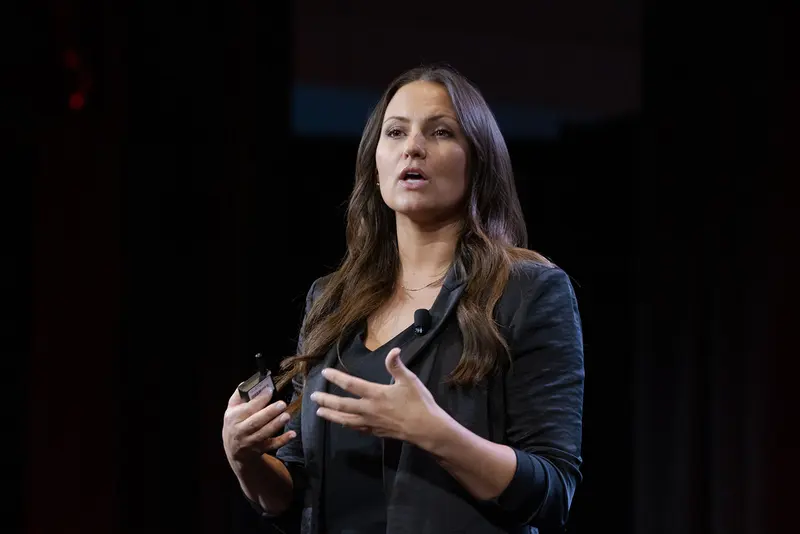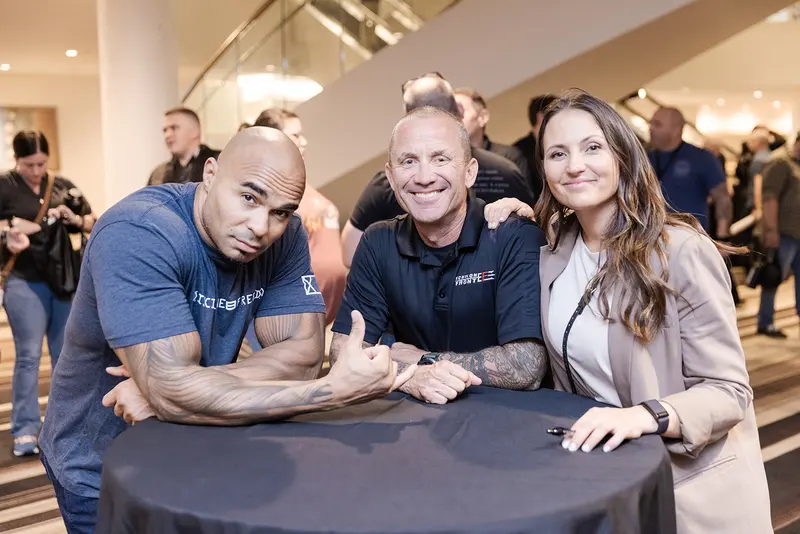Boundaries are an ever-increasingly popular method of handling the difficult interactions that humans have with one another throughout their lives at work and personal lives. Knowing how to set boundaries can become quite a challenge. As defined in the first article of this series, a boundary is an immovable barrier
Getting promoted at work isn’t about luck or simply being in the right place at the right time. It’s about consistently proving that you’re capable of taking on more responsibility and driving the success of your team and organization. Promotions are earned by those who show initiative, demonstrate discipline, and
The Power of Self-Awareness in the Workplace At Echelon Front, we talk a lot about leadership, but one of the most underrated skills—both for leading and for career growth—is self-awareness. It’s the ability to recognize how you show up, how others experience you, and where your blind spots are. The
Morale is a decisive component for any team to be successful because everything we do as a team is done by human beings. And people aren’t robots where they can simply be programmed, turned on, set to “maximum effort” and sent off to execute. Human beings, unlike robots, have emotions,
As the leader of a team, it is your responsibility to place the right people in the right positions so that the team will reach its greatest potential and be successful. Throughout the course of this duty, you will be forced to make difficult decisions. Most often, there is only
It’s the Same, but It’s Different When it comes to leadership, Extreme Ownership stands out as a game-changer. It’s all about taking full responsibility for your actions and outcomes—no excuses, no blaming others. And when you pair it with the Laws of Combat, it becomes a practical guide for tackling
Getting buy-in from your team is critical if you want to successfully roll out any new initiative—whether it’s a minor tweak in how things are done or a major organizational shift. It’s not just about telling people what’s changing; it’s about connecting with them in a way that makes them
In the first few months of my recovery from double-above-knee amputations, as one might expect, I was entirely reliant upon a wheelchair for my mobility. Despite the fact that it allowed me to go where I wanted to go and do what I wanted to do, I didn’t like being
If you find yourself being overlooked for a promotion, it can feel incredibly frustrating. You’re working hard, hitting deadlines, and feel like you’re adding value to the team and mission—so why is it that someone else always gets the call? Instead of feeling frustrated, it’s time to take ownership of
Career advancement and promotions are a part of every professional’s journey. Whether it’s developing additional skills, enhancing skills you already have, climbing the corporate ladder or gaining a higher level of responsibility, the path to career advancement can seem unclear. But the truth is, promotions and next level positions don’t
While many people may be focused on how to get promoted, there are also those in the position of making promotion decisions that want to ensure they select the right person. If the wrong person is thrust into a position for which they are not ready, or if the person
Recently, someone asked me this question: “How do I get promoted quickly?” It wasn’t the first time I’d heard it. It’s a question that gets right to the heart of what so many of us want—growth, recognition, and the chance to take on bigger challenges. Promotions are earned by showing,
As discussed in the previous article, it is our natural human tendency to erect boundaries more readily and frequently than is necessary or ideal. This occurs due to many of the other multitude of tendencies that human beings follow: blaming others, taking the easy path, thinking short term, over-thinking long
When I look back on my time in the Marine Corps, being selected for promotion was always a goal. I was constantly searching for more—more responsibility, more opportunities, more insight into what was happening and how I could help the people or organization move forward. Along the way, I gained
In today’s dynamic work environment, one metric often sparks discussion among leaders: the attrition rate. Defined as the rate at which employees leave an organization over a specific period, this figure provides critical insights into the health of a team and the effectiveness of its leadership. Yet, understanding attrition goes
As I travel around the country working with different organizations, I hear more and more of a common complaint: “There’s a shortage of skilled labor.” Or “We don’t know what we’ll do when (insert name here) retires or leaves to work for another company.” It’s a tough spot that many
Nobody Escapes Life We are all subject to the undeniable fact of life that we do not control everything. As a result of that, there will inevitably be a multitude of external factors that will affect our lives on a daily basis. Some are directly connected to our actions. For
When human beings encounter situations and circumstances that disrupt their homeostasis, they cannot function optimally until that homeostasis is re-established. As humans, we seek stability, certainty, and equilibrium. When all of that is interrupted, we naturally seek ways to regain it. It is this innate need that results in boundaries
An understanding of attrition is crucial for managing teams and any organization that is planning for the future. What is the attrition definition? Attrition refers to an employee’s decision to part ways with a company, such as resignation and retirement, but does not include layoffs or dismissals. Attrition is a
When it comes to leadership, one of the most critical and often overlooked responsibilities is planning for the future of your team or organization. Succession planning is about much more than filling an empty chair—it’s about preparing your team and your organization for the future. You’re not going to lead
In the realm of business and leadership, the term “employee attrition” frequently surfaces, yet its profound implications on an organization are often misunderstood or underestimated. What is employee attrition, and why does it hold such significance in the effective management and growth of a company? This article delves into the



















